A New Study Investigates How Often Americans Search for Sex Toys Online
Maybe it’s purity culture, maybe it’s a class issue… but either way, the numbers are low.

Earlier this year, TechySex.com released a study of how often people search for sex toys online in the United States. They also conducted a similar study in Europe.
The study looked at search volumes of four popular sex toy types (vibrators, dildos, penis rings, and masturbation sleeves), as well as generic keywords (e.g. “sex toys” or “erotic goods”).
According to their published report, the study’s goal was to “identify which geographic regions do the most Google searches for adult products, relative to their population.”
When looking at overall searches, those regions in the U.S. were West Virginia, Oklahoma, Alaska, Maine, and Mississippi. But there’s more to the story.
American search volumes overall were very low
“Generally, the states in the U.S. showed very uniform search volumes and relatively low deviation from the average,” the study reads.
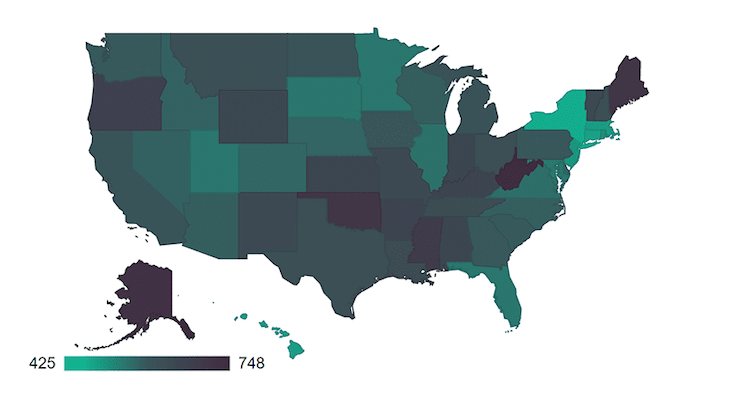
To provide context, the top U.S. state for overall search volume (West Virginia) had 748 estimated monthly searches per 100,000 adults. This is less than any country on the European Top 5 list. People in Sweden, Europe’s top finisher, also searched for generic keywords three times more than any U.S. state.
Given the prevalence of fundamentalism and “purity culture” in the U.S., these low numbers are hardly surprising. But there were a few interesting standouts.
RELATED READ: 5 Social Media Accounts Helping People Grow Past Fundamentalism
Isolated Alaska topped many keyword lists
But really, how else do they get sex toys?
Due to the state’s location and limited manufacturing, Alaska imports many of its goods. So it makes sense that the same would apply to sex tech products.
Alaska was the highest ranking state for the “dildo” keyword, second for “penis rings,” and second for overall searches. However, you’ll notice on the other lists that Alaska is never very far behind the 5th place finisher.
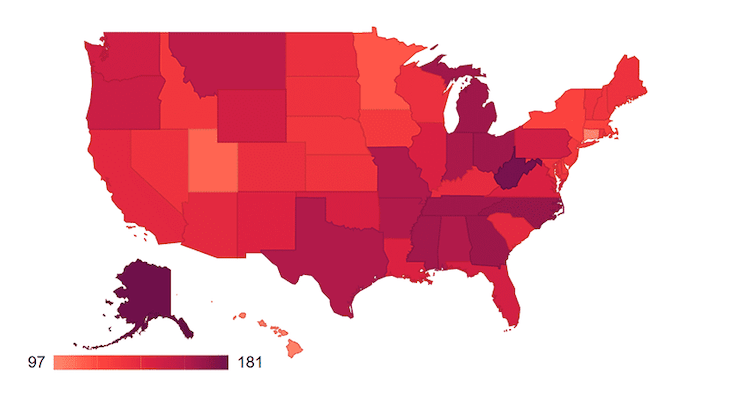
Masturbation sleeves was the only list with West Coast states
For most keywords, the top ranking states were limited to the South and Alaska. Occasionally there would be one state from the East Coast or Midwest, but none from the West Coast—until masturbation sleeves.
Oregon led with 240 estimated monthly searches for keywords like “penis sleeves” and “male masturbators,” which is about 36% more than the average. California also appeared in the Top 5, ranking 5th at 205 searches.
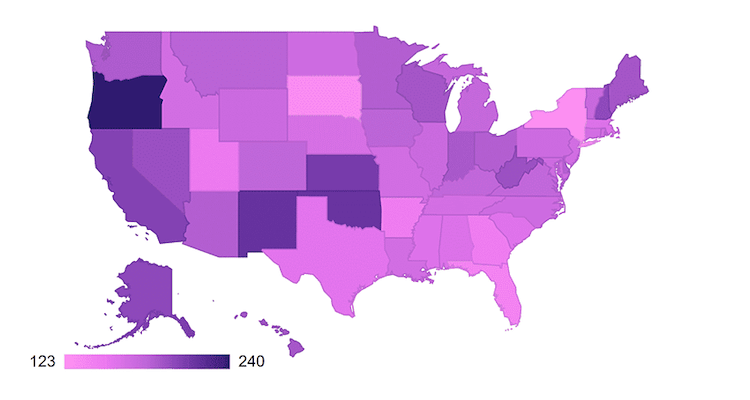
Lower-income states show a higher interest in sex toys
TechySex.com also looked at whether there was a correlation between wealth and sex toy interest.
Looking at a state’s gross domestic product (GDP) and average monthly income, both figures “appeared to correlate with search interest… with less wealthy states showing slightly higher interest in sex toys.”
This is the opposite of Europe, where countries with a higher GDP tended to show a higher interest in sex toys.
These low-income-high-interest states are primarily from the South (census bureau region) and include West Virginia, Mississippi, Oklahoma, Arkansas, Kentucky, Alabama, and Louisiana.
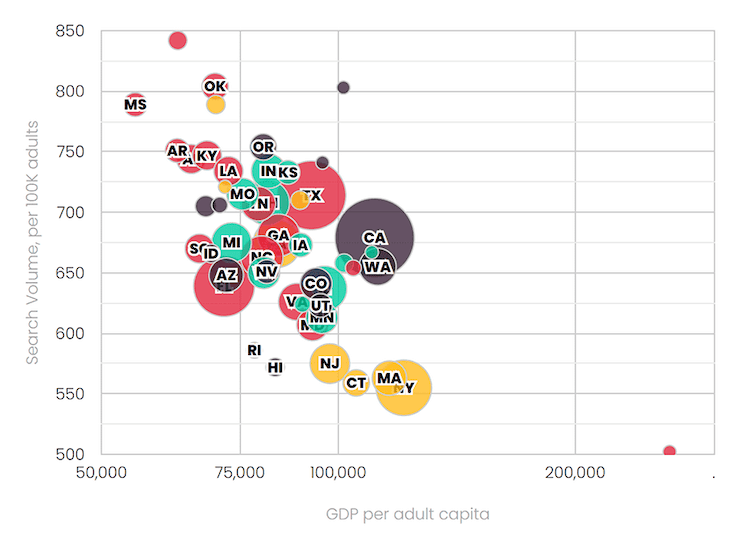
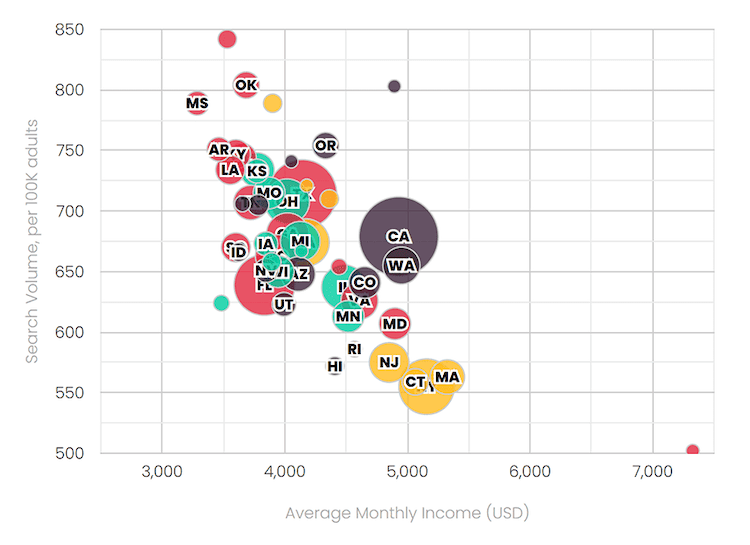
Towards the end of this section, the study notes that “most states fall into a relatively narrow range, so it is difficult to draw strong conclusions just by this chart alone.”
It’s also worth mentioning that when calculating the relative popularity, TechySex.com used U.S. census demographic reports, which raises questions about how representative that data can be.
Potential theories for these numbers
Higher-income often means higher class
A pervasive attitude in the U.S. is that sex toys are considered “trashy” and low class. It wouldn’t be far-fetched to assume that people in higher wealth brackets hold this opinion and, therefore, wouldn’t be searching for sex toy products.
Faith could be a factor for low search volumes
Nonpartisan research organization PRRI reported in 2020 that 70% of Americans identify as Christian. Many Christian denominations encourage abstinence and often discourage or even vilify masturbation.
Those groups may believe they shouldn’t be using (or even searching for) sex toys.
There might also be a correlation to required abstinence education
It’s hard to ignore how eerily similar the search volume maps are to maps that show each state’s abstinence education requirements.
According to data from SIECUS’ Sex Ed State Law & Policy Chart, 34 states require schools to stress abstinence in sex education, and seven additional states require that it is at least covered.
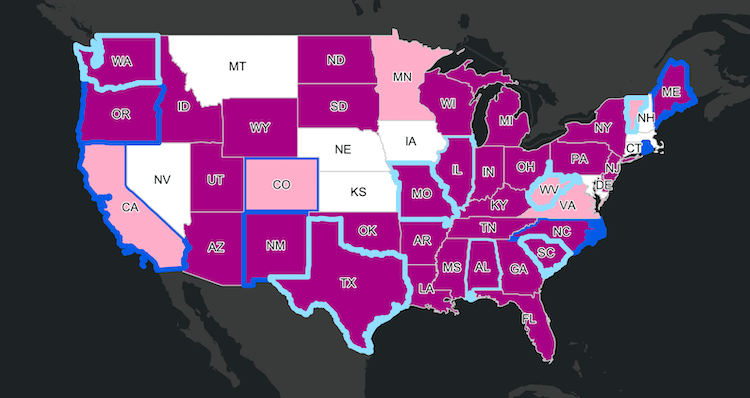
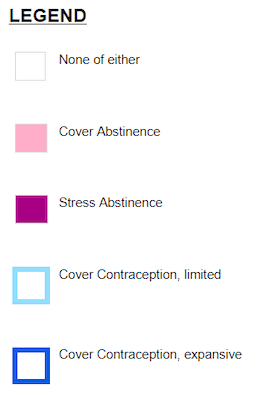
There’s a strong overlap compared to the map for generic sex toy keywords, particularly in the South. Three out of the five top-ranking states (Mississippi, Wyoming, and Arkansas) require that abstinence be stressed but don’t require any education on contraception.
People may use sex toys as a tool for remaining abstinent.
Though it is also important to note that this study only tracks search volumes and doesn’t present any data about how many of these searches resulted in a sale.
For the full insights, see the report on TechySex.com.
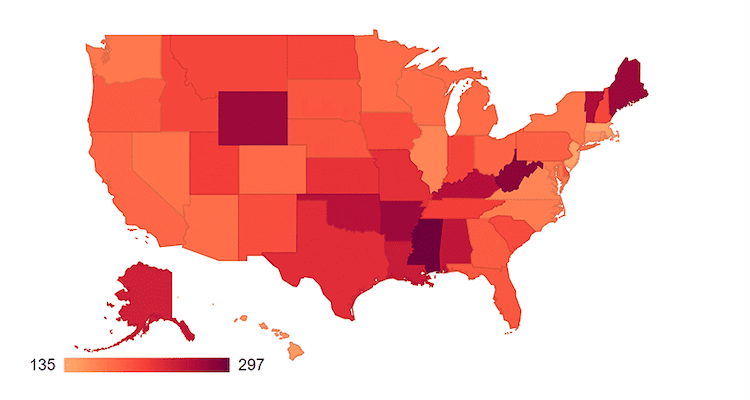
Image sources: Arkan Perdana, TechySex.com, Lydia Wilimitis

















